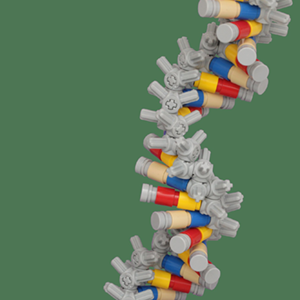When we talk about organizations, or other forms of collective action by groups of people, we often speak as if we have dominantly conscious control. We talk about designing the business, developing the policies, arranging the office, and building relationships. In short, we talk like architects or construction workers — agents with autonomy, attention, and control over the ways and means of our working lives.

But evidence from a range of disciplines suggests that we’re not really in conscious control of much — individually or collectively. Sure, we make what feel like decisions and we attribute them to our actions. But that may be more fiction than fact.
At the individual level, there are good indications that our conscious brain works much or most of the time justifying or contextualizing what our unconscious and sensory systems have already determined (see Daniel Kahneman or Benjamin Libet, as examples). Here, the conscious mind is the attorney, not the client.
At the collective level, there’s also good evidence that our social instincts are the product of thousands of generations of natural selection, and not (only) the product or process of a complex conscious mind. Further, there’s evidence that a wide range of non-human animals have similar instincts, because they improve evolutionary fit for many environments.
In his 2019 book, Blueprint: The Evolutionary Origins of a Good Society,
sociologist/physician Nicholas A. Christakis suggests a “social suite” of eight evolutionary instincts that combine and intertwine to shape and structure all aspects of our social lives:
- Capacity to have and recognize individual identity
- Love for partners and offspring
- Friendship
- Social networks
- Cooperation
- Preference for one’s own group (in-group bias)
- Mild hierarchy (uneven attribution of prestige or authority within groups)
- Social learning and teaching
Each of these and all of these certainly connect to aspects of organizational life. We can think and speak about them as if they’re available to our direct attention and creative control. But Christakis suggests that they’re deep in our instinctual and sensory selves, rather than products of our intentions.
This doesn’t mean we avoid intentional(ish) design, discovery, action, and effort when working together. It just means we have fewer levers to fiddle with than we often claim to have. This possibility of social action that’s dominantly deeper than reason suggests that we bring extra helpings of humility, patience, and awareness to all forms of collective effort. We’re passengers more than we are pilots at the wheel.


Your post made me think of Ayn Rand, who would have hated this. Or who would have said that there are individuals who are capable of punching through the veil and taking conscious control. I never cared for Rand or agreed with her philosophy, but this made me want to root for her heros.
Thanks Trevor. It would be satisfying to annoy Ayn Rand. Although I regret that the post leads you to root for her self-regarding protagonists. It is certainly disquieting to think that much of our conscious thinking is a sidecar rather than the motorcycle of our actions in the world. But it’s worth a wrestle, nonetheless.